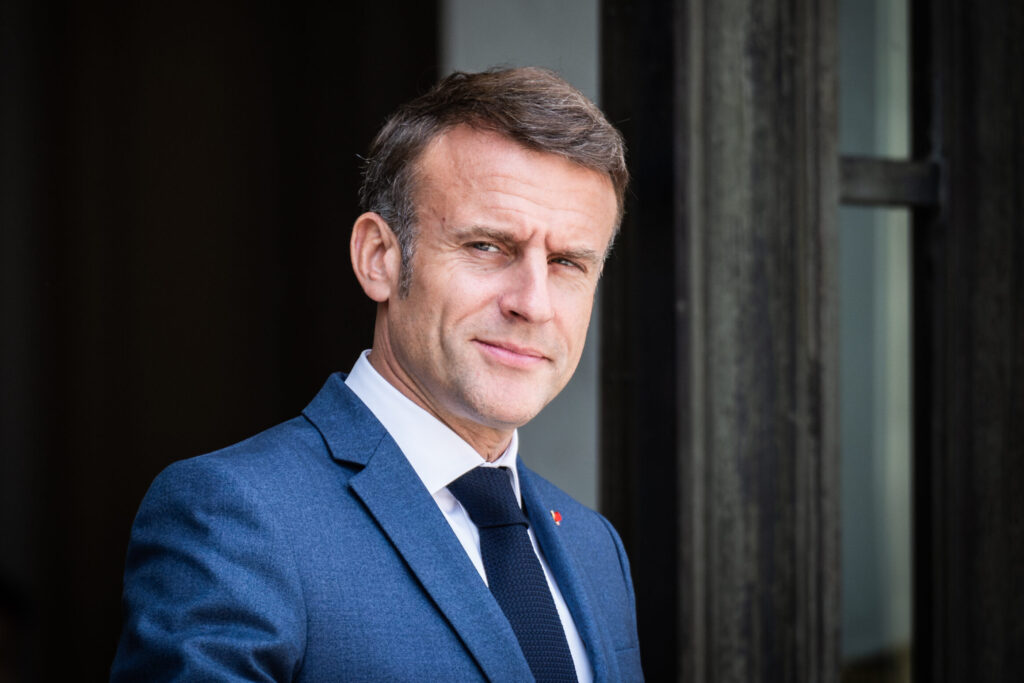Paris, France — The French government is on the brink of a significant political showdown as a no-confidence vote looms, prompted by widespread strikes and mounting opposition to President Emmanuel Macron’s immigration policies. The no-confidence vote has been triggered by both left-wing and right-wing parties, fueled by frustration over new legislation that seeks to tighten the country’s migration laws.
Michel Barnier, a prominent French politician and former EU Brexit negotiator, has emerged as a key figure amid the political turbulence. The no-confidence motion follows days of protests across France, where unions and demonstrators took to the streets in response to growing discontent over Macron’s policies and what they see as a government out of touch with public concerns.
The legislation at the center of the crisis aims to toughen entry requirements for migrants and expedite the deportation process for those without valid residency status. President Macron and his allies have argued that the new law is necessary to address concerns about immigration and national security, framing it as a balanced approach to manage the pressures of migration. However, critics from both sides of the political spectrum argue that the measures are either too harsh or not strict enough.
The far-right National Rally, led by Marine Le Pen, has criticized the government’s migration stance for being insufficient in stemming the flow of illegal immigration, while the left-wing coalition led by Jean-Luc Mélenchon has condemned the law as inhumane, accusing Macron of pandering to anti-immigrant sentiment. This rare convergence of opposition from both ends of the political spectrum has intensified the pressure on Macron’s government.
Michel Barnier, who has held key roles in French and European politics, has voiced support for the no-confidence motion, signaling a deepening division within the French establishment. Barnier criticized Macron’s handling of the situation, suggesting that the government has failed to listen to the concerns of ordinary citizens.
“The government’s inability to address the challenges posed by migration in a fair and effective way has brought us to this point,” Barnier stated. He emphasized the need for a new approach to governance that could restore public confidence in France’s leadership.
The strikes have added another layer of complexity to the political crisis. Workers across key sectors, including transport and public services, have walked out in protest, demanding better working conditions and expressing dissatisfaction with the government’s perceived disconnect from the issues facing the French people.
The no-confidence vote is set to be a major test for Macron’s government, which has faced a series of challenges since his re-election. If successful, the vote could lead to the dissolution of Prime Minister Élisabeth Borne’s cabinet, forcing President Macron to appoint a new government or call for new elections. Macron’s centrist alliance, Renaissance, currently does not hold an outright majority in the French National Assembly, making the outcome of the no-confidence vote highly uncertain.
As France braces for the outcome of the no-confidence motion, the nation is deeply divided. Protests have continued in major cities, including Paris, Lyon, and Marseille, with demonstrators calling for greater accountability and a shift in the government’s approach to both migration and broader economic issues.
The coming days will be crucial for Macron’s government as it tries to rally enough support to survive the no-confidence vote. Meanwhile, the political instability has cast doubt on the government’s ability to move forward with key reforms amid widespread discontent, leaving many French citizens uncertain about the future direction of the country.
Sources:
- The Sun. “France Crisis: Michel Barnier Backs No-Confidence Vote Against Macron Amid Strikes Over Migration Law.” Link
- Statements from Michel Barnier on government policies, December 2024.
- Reports from French unions and protest organizers regarding ongoing strikes.

